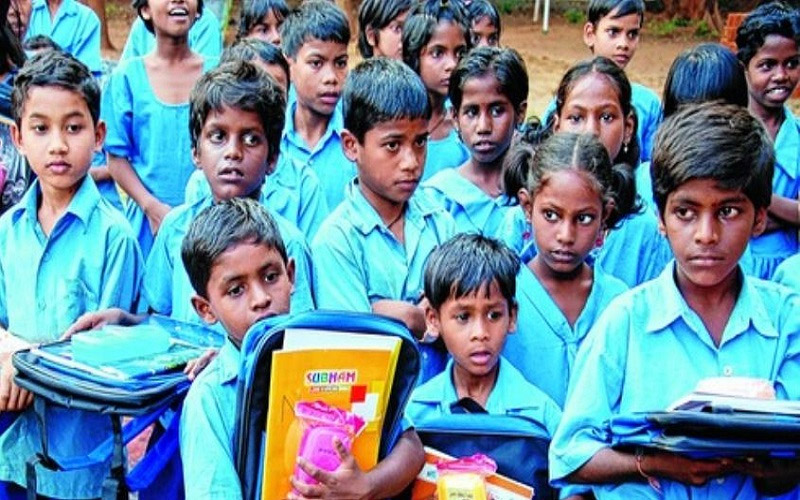Dr Raja Muzaffar Bhat
The section 21 of The Right of Children to Free and Compulsory Education Act, 2009 also called Right to Education Act (RTE) impresses upon Government schools to constitute a School Management Committee (SMC). The SMCs consistsof the elected representatives of the local authority, parents or guardians of children admitted in such schools and teachers. The RTE Act says that proportionate representation shall be given to the parents or guardians of children belonging to disadvantaged groups and weaker sections. In addition to it 50 percent members of SMC have to be women. The SMCs play a great role in making Govt schools more competitive and it strengthens the bond between parents and teachers which otherwise is missing in the Government run institutions. The School Management Committee (SMC) has to perform the following function :
* To monitor the working of the school
* Prepare and recommend school development plan
* Monitor the utilisation of the grants received from the appropriate Government or local authority or any other source and perform such other functions as may be prescribed.
The Aam Aadmi Party Government in Delhi has earned a reputation across the world for its radical educational reforms over the past 5 to 6 years. The initiative of the AAP Government in Delhi to involve parents in the School Management Committees (SMCs) had won accolades from Harvard University, which conducted a research project on the same in 2017. The SMCs were constituted by the Aam Aadmi Party Government around 2015 and within 2 years there were good results seen on the ground.
The involvement of SMC members in taking decisions for the Delhi Govt run schools proved to be beneficial for the students. The SMCs were constituted for a period of two years and the elections are held after every 2 years for this committee. The SMCs have 16 members headed by a school principal. The committee includes 12 parents, one principal, one teacher, a representative of the MLA and one social worker. In most of the states SMC s are only seen on papers , but Delhi Govt has made SMCs workable on ground.
Right to Education Act
Education is a three-pronged activity. This involves school, students and the parents/ community. When the participation of the parents or community is abysmal it directly impacts the education system. The progress of any nation is directly dependent on educational growth. The RTE Act ensures free and compulsory education to children across India. This law was not operational in Jammu & Kashmir before article 370 was abrogated. The previous Govt’s could have extended this law or enacted a similar legislation in J&K, I am unable to understand what prevented them from doing so ? As discussed above RTE enumerates the role of the School Management Committee (SMC) as a very important component of the school educational system. The SMCs provide for the participation of the parents in the governance of the academics and activities of the school but these committees are not working on ground. Even as RTE has been operational in J&K for almost 3 years , we don’t see this law being enforced on ground.
Powers and Functions of the SMC
The SMC ensures that-
* Admissions are made without discretions.
* The welfare of teachers and other employees are taken care of.
* Appointment of teachers and other employees shall be made with the committee’s approval.
* The SMC shall have financial powers beyond those delegated to the Principal.
* It can audit the academics and activities without interfering with the freedom of the Principal.
* The fees and other charges shall be approved by the SMC.
* The budget presented by the Principal shall be reviewed by the SMC.
* The SMC shall also review the steps taken for the safety and security of the students and staff of the school;
* The SMC shall also look into the grievances of the staff and deal with these appropriately.
Conclusion
When the parents , local community leaders and the teachers join hands by setting up School Management Committees (SMCs) the results are exemplary. Delhi’s Govt schools have well established SMCs who get 5 to 7 lakhs per annum for school development. This is a special grant other than Govt’s budgetary allocation. Now the school Principal has not to seek permission from his district officer or Directorate to get minor repairs done in school or to make purchases . This committee is empowered enough to do that. Many Govt schools in Delhi have the best Gymnasium and even swimming pools. More than two and half lakh students from private schools of Delhi have got admission in Govt run schools. The parent teacher meetings (PTMs) have better participation of parents which otherwise is a challenge in Govt schools especially in J&K. This was only possible by the drastic educational reforms of the Delhi Govt and operationalizing the RTE Act 2009 on ground by creating School Management Committees-SMCs in every school. The Govt schools in J&K are messed up. We have set up SMCs only on papers in J&K and it is the duty of Government to make them operational and vibrant on the ground as well.
Trending Now
E-Paper


